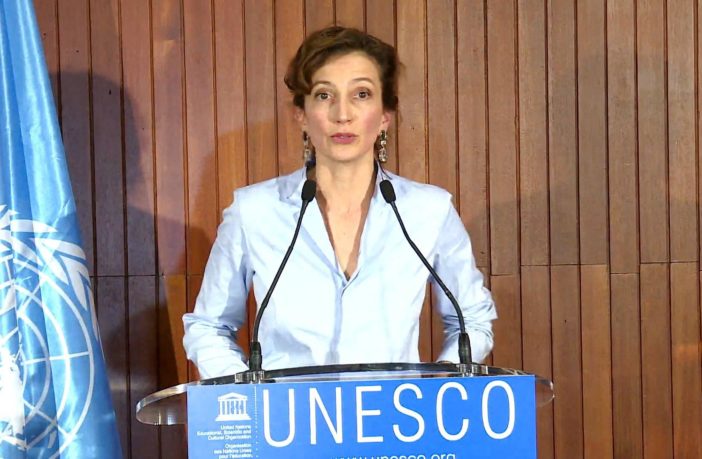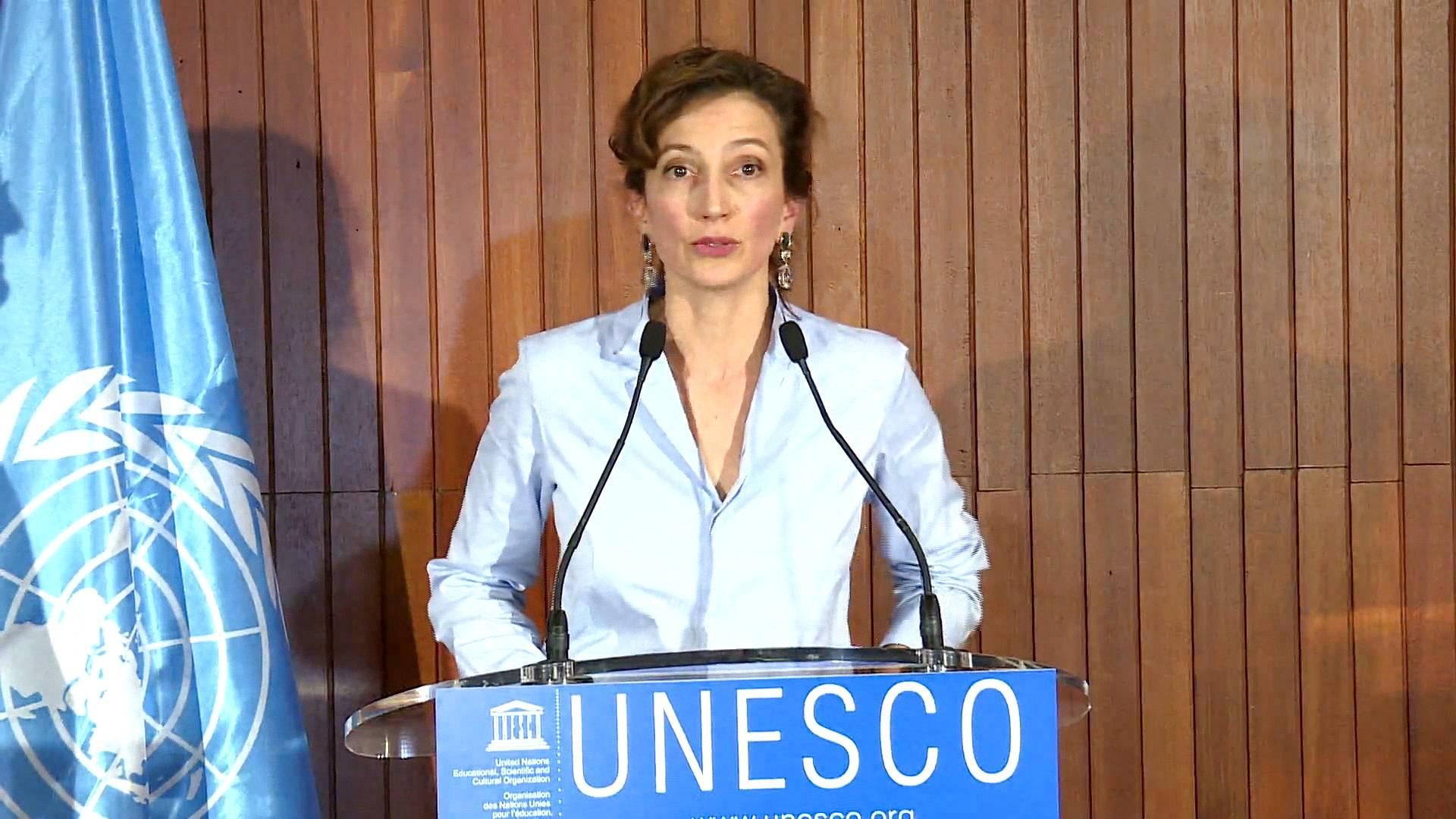Al Jazeera
Audrey Azoulay has been elected to become the next head of UNESCO – the UN’s education, science and culture agency – after an unusually heated vote that was overshadowed by Middle East tensions.
The board’s selection of Azoulay, 45, over a Qatari candidate came the day after the United States announced that it intends to pull out of UNESCO because of its alleged anti-Israel bias.
The news rocked a week-long election already marked by geopolitical resentments, concerns about the Paris-based agency’s dwindling funding and questions about its future purpose.
If confirmed by UNESCO’s 195-member General Assembly next month, Azoulay will succeed outgoing Director-General Irina Bokova of Bulgaria, whose eight-year term was marred by financial woes.
Azoulay was born in Paris to a Moroccan Jewish family from Essaouira, and is the daughter of Andre Azoulay, an adviser to King Mohammed VI of Morocco.
Arab leadership bid
Azoulay, a former French culture minister, narrowly beat Qatar’s Hamad bin Abdulaziz al-Kawari in the final 30-28 vote after she won a runoff with a third finalist from Egypt earlier on Friday.
The outcome was a blow for Arab states that have long wanted to lead the UN Educational, Scientific and Cultural Organization.
UNESCO has had European, Asian, African and American chiefs, but never one from an Arab country.
In brief remarks after she won the election, Azoulay said the response to UNESCO’s problems should be to reform the agency, not to walk away from it.
“In this moment of crisis, I believe we must invest in UNESCO more than ever, look to support and reinforce it, and to reform it. And not leave it,” she said.
The Qatari government extended congratulations to France on Azoulay winning the post.
The foreign ministry in Doha said in a statement that al-Kuwari ran the electoral process with honour and integrity, while it praised the electoral process for its fairness and transparency.
Reaction to the vote in Qatari media was less favourable.
READ MORE: US and Israel withdraw from UNESCO
Arrayah newspaper blamed the loss of al-Kuwari on a lobby by Qatar’s detractors; “their main goal and success was to prevent the winning of the Qatari candidate at all costs”.
“The siege countries (Saudi Arabia, United Arab Emirates, Bahrain and Egypt) mobilised their efforts in open and scandalous conspiracies against the candidate of Qatar, in a precedent not known to the Arab homeland in such a gross and ugly form,” Arrayah added.
Azoulay started the week with much less support than al-Kawari but built up backing as other candidates dropped out. She went on to win a runoff with a third finalist, Moushira Khattab of Egypt.
Egypt’s foreign ministry has demanded an inquiry into alleged “violations” during the voting.








